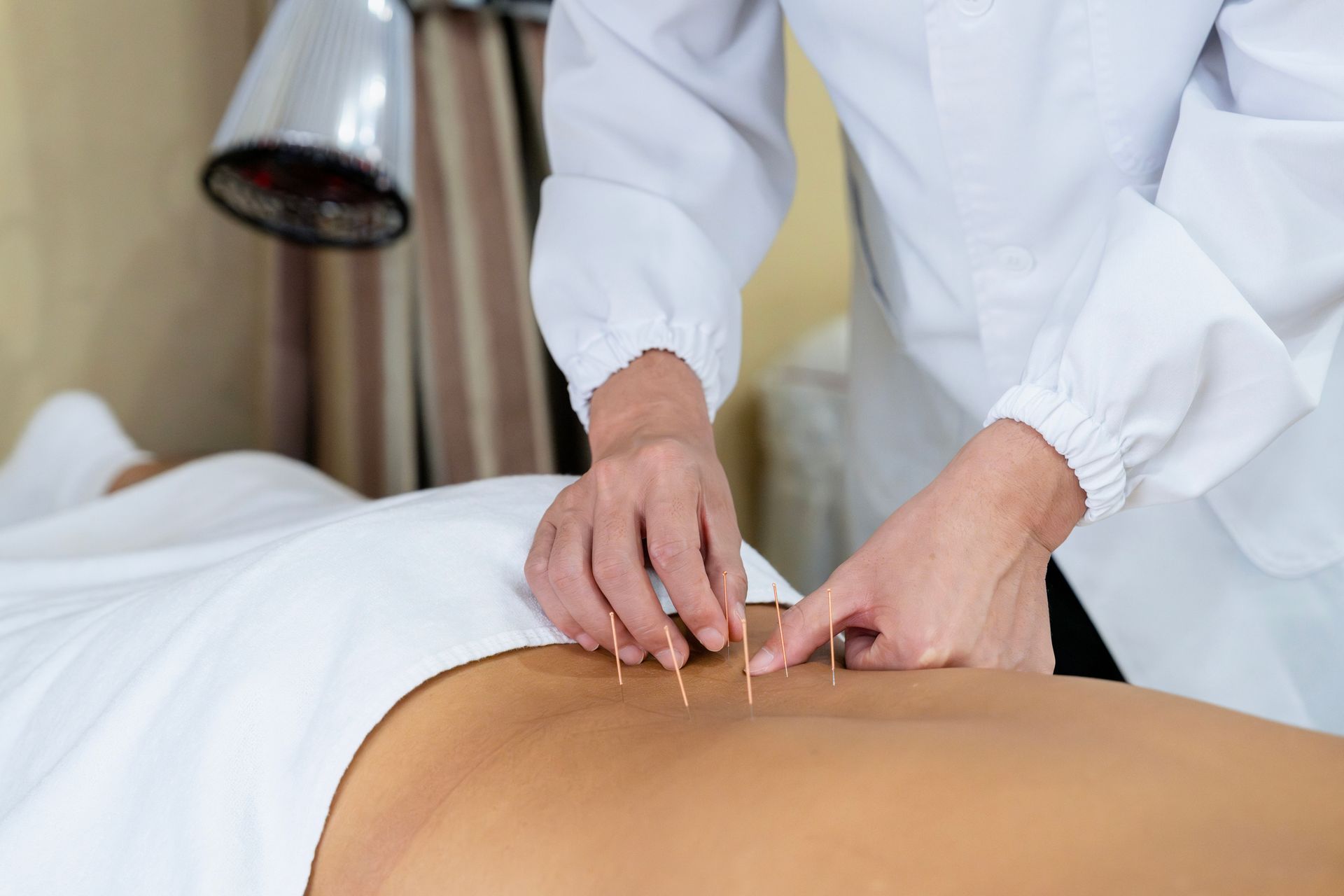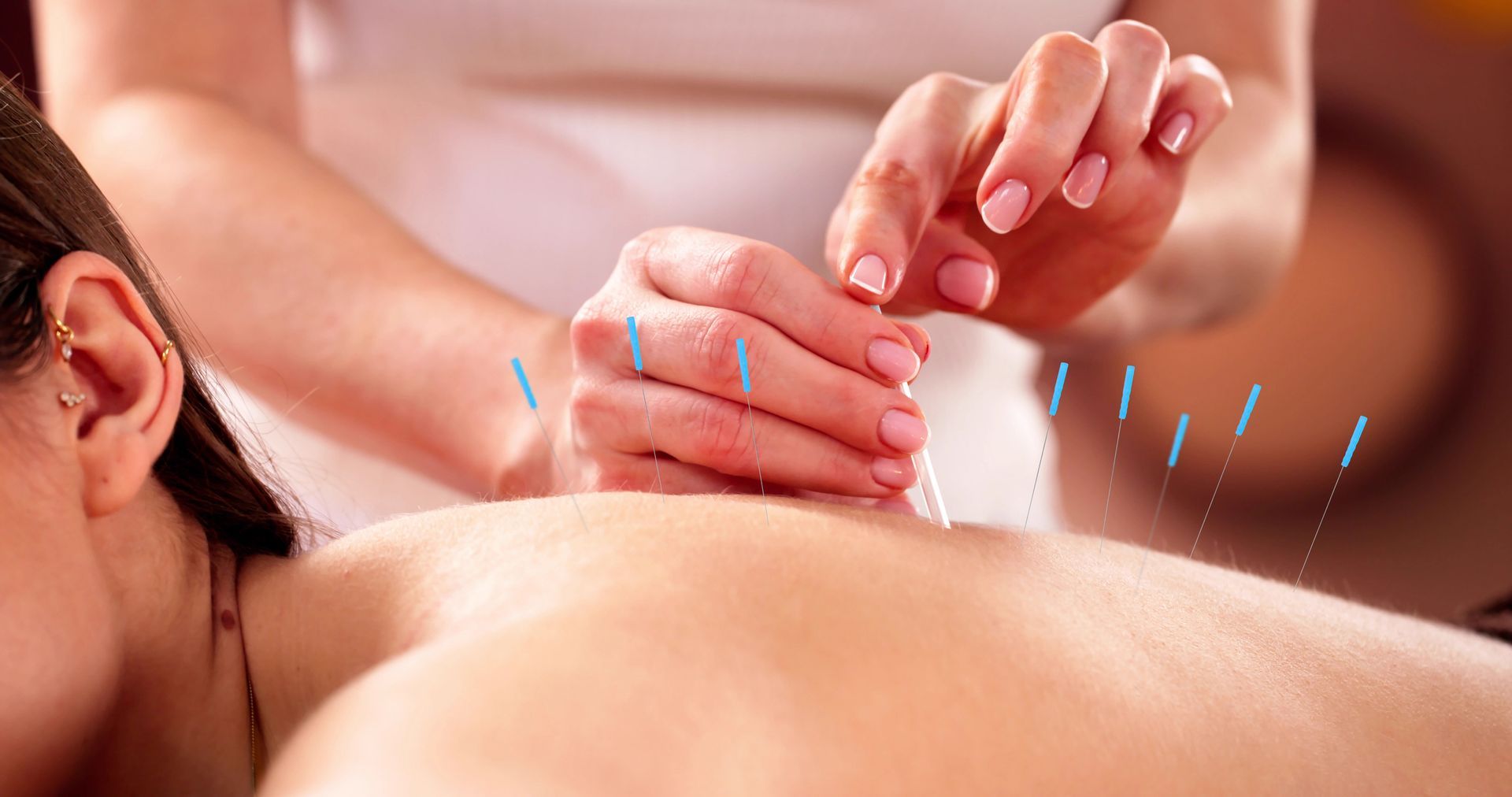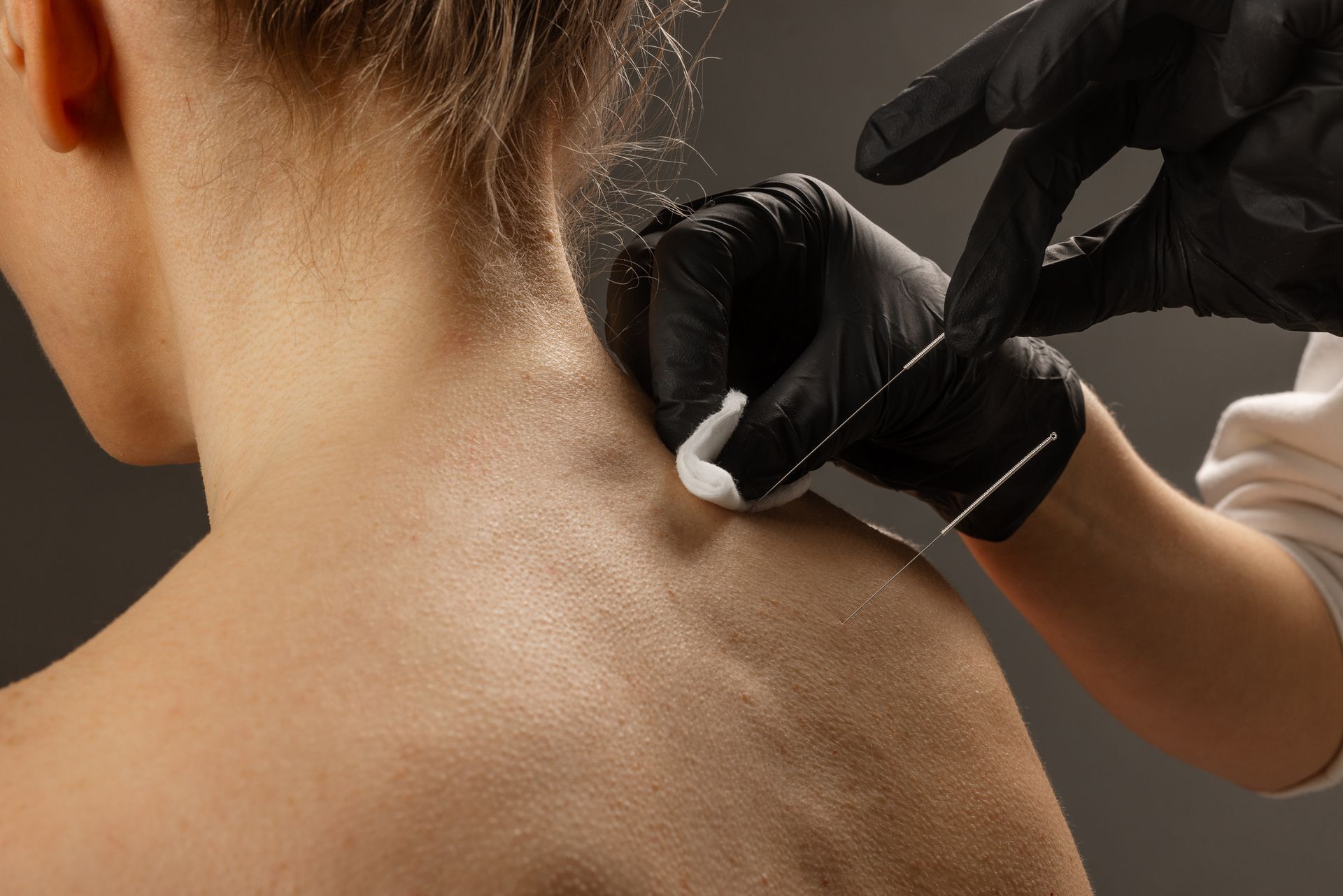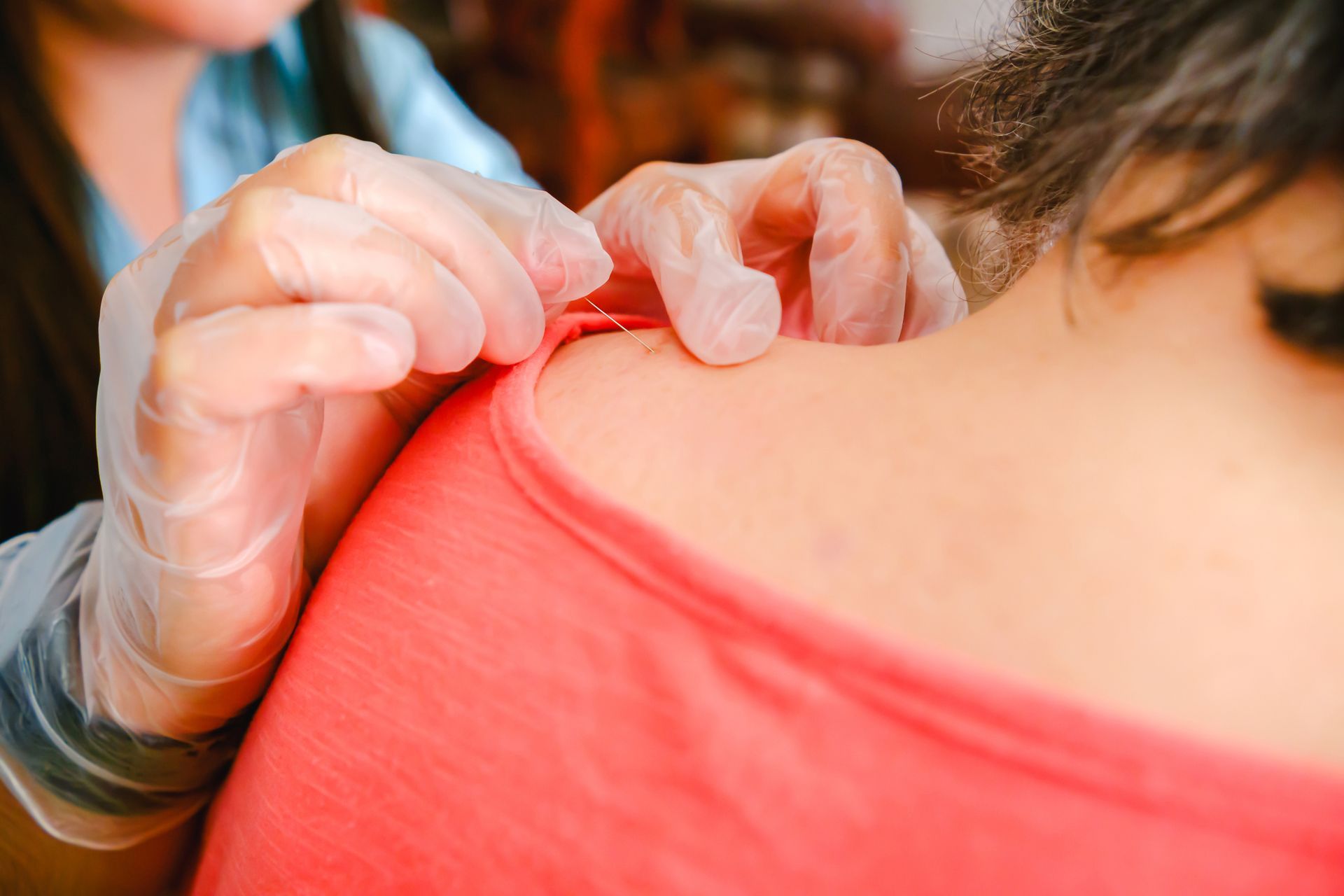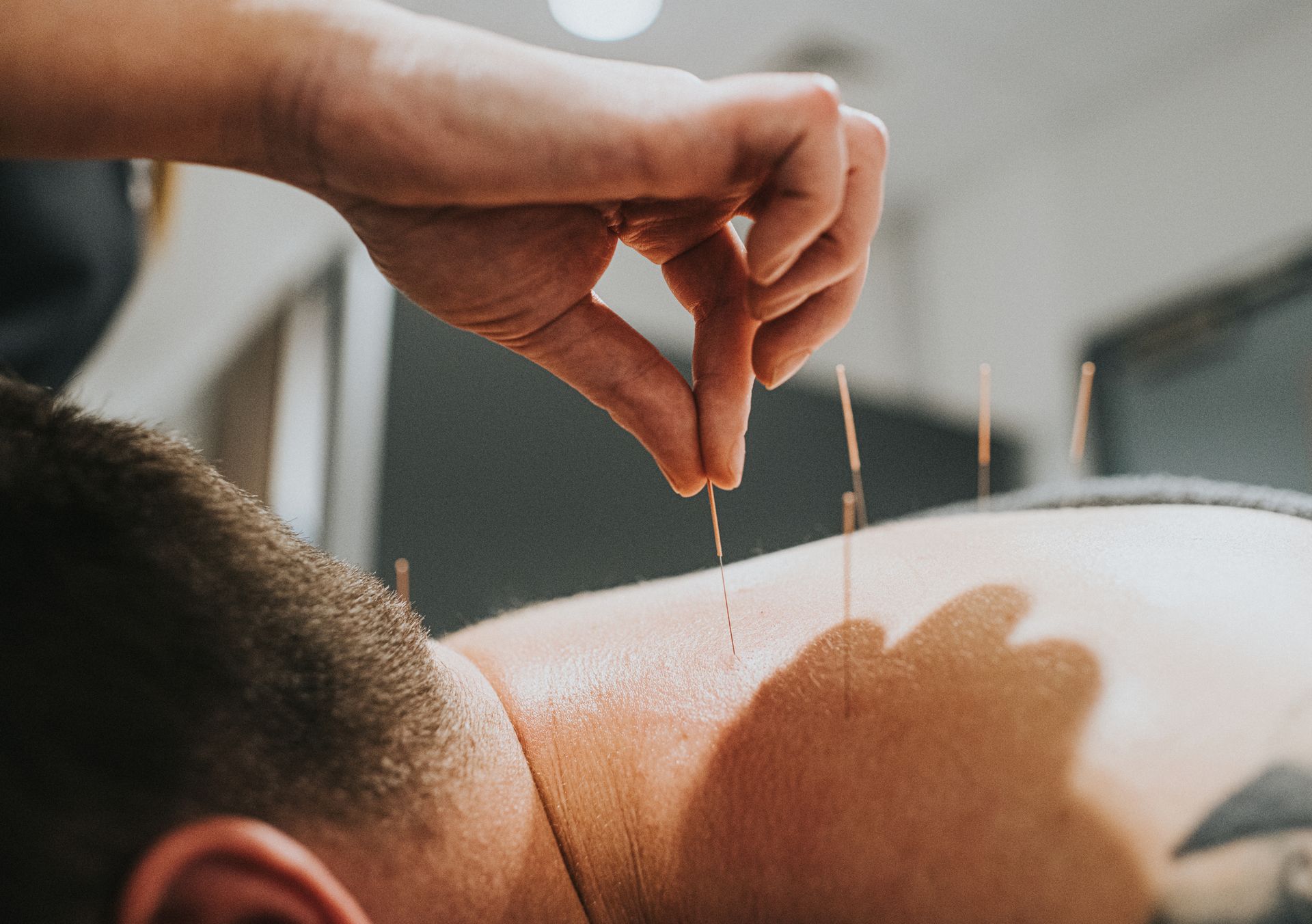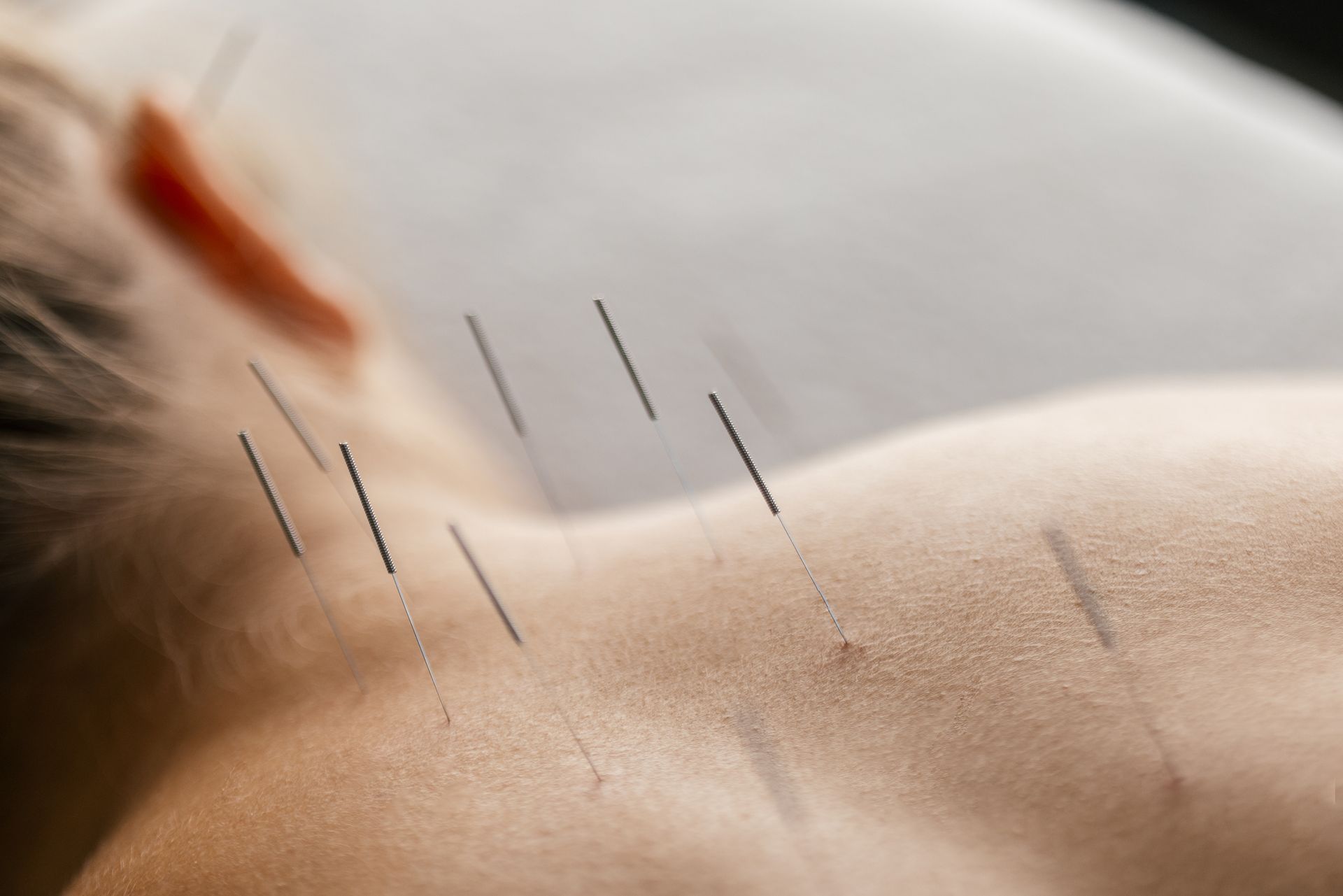TARGETED PHYSIOTHERAPY PAIN MANAGEMENT THROUGH DRY NEEDLING
RELIEVE MUSCLE TENSION & RESTORE MOVEMENT THROUGH TARGETED DRY NEEDLING & ACUPUNCTURE
At Sturt Road Physio in Brighton, SA, we offer professional acupuncture and dry needling treatments designed to relieve muscle tension, reduce pain, and accelerate recovery. Serving the communities of Brighton, Marion, and Glenelg, our physiotherapists use these evidence-based techniques to complement traditional physiotherapy and enhance your body’s natural healing processes.
Our experienced practitioners have extensive training in musculoskeletal acupuncture and dry needling, allowing us to deliver precise, effective treatments that target the root cause of discomfort, not just the symptoms. Whether you’re dealing with chronic muscle tightness, tension headaches, or sports-related pain, our goal is to help you move freely and feel your best.
WHAT IS DRY NEEDLING?
Dry needling is a modern physiotherapy technique that involves inserting very fine, sterile needles into myofascial trigger points, tight bands of muscle fibres that can cause local or referred pain. These trigger points often develop after injury, overuse, or stress and can restrict normal muscle function.
When the needle is inserted into a trigger point, it produces a local “twitch” response that releases the tension, increases blood flow, and restores normal muscle movement. The result is reduced pain, improved flexibility, and faster recovery.
Dry needling is particularly effective for:
- Chronic muscle tightness or stiffness.
- Sports injuries and overuse syndromes.
- Neck, shoulder, and back pain.
- Headaches and migraines related to muscle tension.
- Sciatica and nerve-related pain.
- Jaw pain and TMJ dysfunction.
At Sturt Road Physio, our physiotherapists are trained to identify the specific muscles contributing to your pain and apply dry needling safely and effectively as part of a comprehensive treatment plan.
HOW DOES ACUPUNCTURE DIFFER FROM DRY NEEDLING?
Although both techniques use fine needles, their philosophies differ. Acupuncture originates from traditional Chinese medicine (TCM) and is based on restoring balance and energy flow (Qi) through the body’s meridians. Dry needling, on the other hand, is rooted in modern anatomy and neuroscience.
At Sturt Road Physio, we use both approaches where appropriate. Some patients respond best to dry needling for musculoskeletal pain, while others find acupuncture highly beneficial for managing chronic conditions, stress, and systemic issues such as tension and fatigue.
WHAT TO EXPECT DURING YOUR TREATMENT
Before your session begins, your physiotherapist will discuss your symptoms, medical history, and treatment goals. This allows us to determine whether dry needling or acupuncture, or a combination of both, is the most effective option for your condition.
During treatment:
- You may feel a slight twitch or dull ache when the needle reaches the trigger point.
- Most patients experience minimal discomfort, and some even find the process relaxing.
- Afterwards, you may feel mild muscle soreness for 24–48 hours, which is a normal part of the healing process.
Treatments are often combined with manual therapy, exercise prescription, and education to ensure long-lasting results.
BENEFITS OF ACUPUNCTURE & DRY NEEDLING
Patients across Brighton, Marion, and Glenelg visit Sturt Road Physio for acupuncture and dry needling because these techniques provide numerous benefits, including:
- Reduced Muscle Tension: Releasing tight trigger points helps restore normal muscle tone and function.
- Pain Relief: Both techniques stimulate the body’s natural pain-relieving chemicals, such as endorphins.
- Improved Circulation: Enhanced blood flow promotes tissue repair and recovery.
- Injury Prevention: Addressing tight or imbalanced muscles helps prevent re-injury and overuse problems.
- Stress Reduction: Acupuncture, in particular, helps calm the nervous system and reduce tension.
- Better Movement and Flexibility: By releasing restrictions, these treatments allow you to move freely and comfortably again.
DRY NEEDLING/ACUPUNCTURE FAQS
Does dry needling hurt?
Most patients feel only a brief prick or twitch when the needle is inserted. The sensation often fades quickly, followed by relief and relaxation.
How long does each session take?
Sessions typically last between 30 and 45 minutes, depending on the area being treated and whether additional physiotherapy techniques are included.
How many treatments will I need?
This varies depending on your condition. Some people feel immediate relief, while others benefit from a short course of treatments. Your physiotherapist will advise based on your progress.
Can I exercise after dry needling?
You can perform light exercise after treatment, but it’s best to avoid strenuous activity for 24 hours to allow your muscles to recover.
Is acupuncture covered by private health insurance?
Many private health funds cover acupuncture and dry needling under physiotherapy extras—check your policy for details.
Call (08) 8377 5222 to schedule your acupuncture or dry needling session and experience effective relief from pain and tension.
Call (08) 8377 5222 to schedule your acupuncture or dry needling session and experience effective relief from pain and tension.

